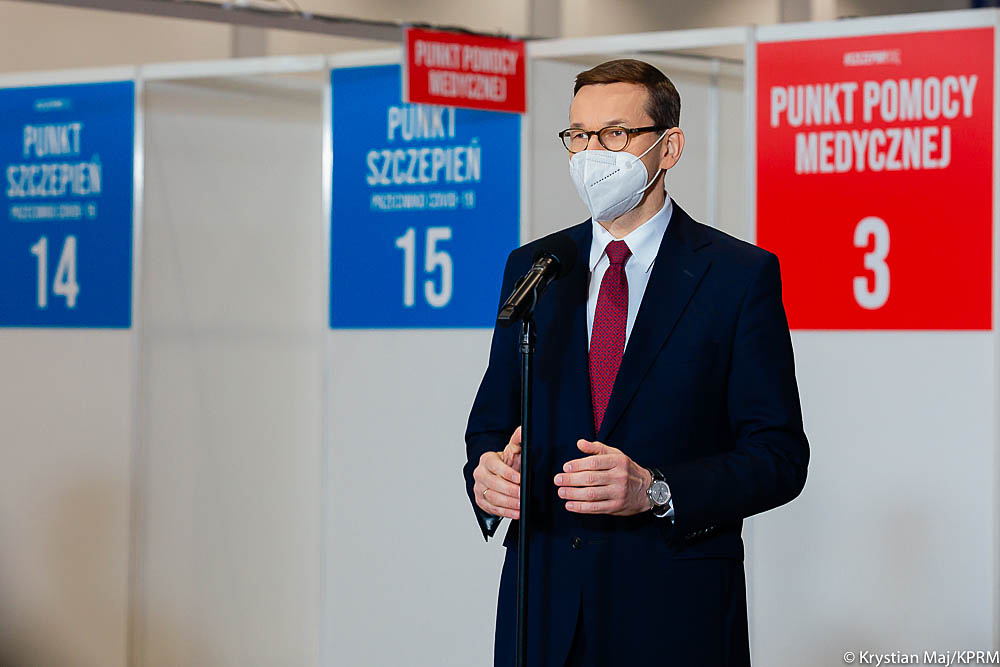Poland will speed up its coronavirus vaccines rollout from next week, with all adults able to register for a jab by 9 May, according to a new schedule unveiled by the government today.
The government has also introduced new rules to minimise the possibility of vaccines being wasted by allowing them to be administered outside the normal schedule if there is a risk of them otherwise not being used.
Starting on Monday, registration will open for two new age cohorts every day, doubling the hitherto rate of one per day. On 9 April, those born in 1974 and 1975 will be able to sign up for the vaccine, followed by those born in 1976 and 1977 on the following day.
This will continue until 7 May, when people born between 1994 and 1996 will be able to register, followed by the 1997-1999 and 2000-2003 cohorts on the two subsequent days.
As a result, by 9 May all adults who want to register for a vaccine should be able to do so. Subsequent vaccination of minors – which Pfizer allows with its vaccines – will be discussed with experts, according to Michał Dworczyk, the prime minister’s chief of staff and official in charge of Poland’s vaccine rollout.
📅 Harmonogram rejestracji w kwietniu i maju 2021 ⤵️#SzczepimySię pic.twitter.com/yD0gKNbbg4
— Kancelaria Premiera (@PremierRP) April 20, 2021
Additionally, on 28 April registration will open to those aged between 30 and 39 who earlier this year used an online system to declare their willingness to receive a vaccine. That group comprises some 400,000 people. On 4 May, the same will be done for those aged 18 to 29 who filled in the form, which was available from January to March.
Today, the government will also publish an ordinance “loosening” rules to allow anyone aged over 18 years to receive a jab “in the event of the risk of the vaccine not being used”, said Dworczyk.
He also announced that the government will discuss the possibility of vaccinating those who have recently been infected with the coronavirus – who are currently barred from registering within three months of receiving a positive test result – as well as re-evaluate the time between the first and second doses.
“For that we will probably have to wait until there are enough vaccines so that securing them is not a problem,” said Dworczyk. Such a decision would take “a few more weeks” but was “fast approaching”.
Poland is facing new delays in the delivery of AstraZeneca vaccines. Only 67,000 are due to arrive this week, rather than the expected 268,000. Dworczyk, however, noted that “more and more vaccine suppliers are fulfilling their pledges”.
As of this morning, Poland had administered just over 9 million coronavirus vaccines, including 2.3 million people who have received a second dose. There are around 7,000 vaccine points around the country, with the government recently expanding their number significantly.
Main image credit: Krystian Maj/KPRM (under CC BY-NC-ND 2.0)

Maria Wilczek is deputy editor of Notes from Poland. She is a regular writer for The Times, The Economist and Al Jazeera English, and has also featured in Foreign Policy, Politico Europe, The Spectator and Gazeta Wyborcza.




















